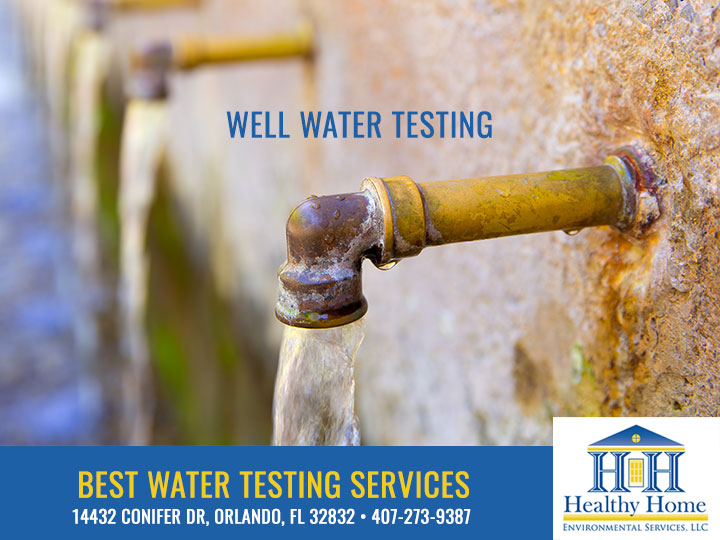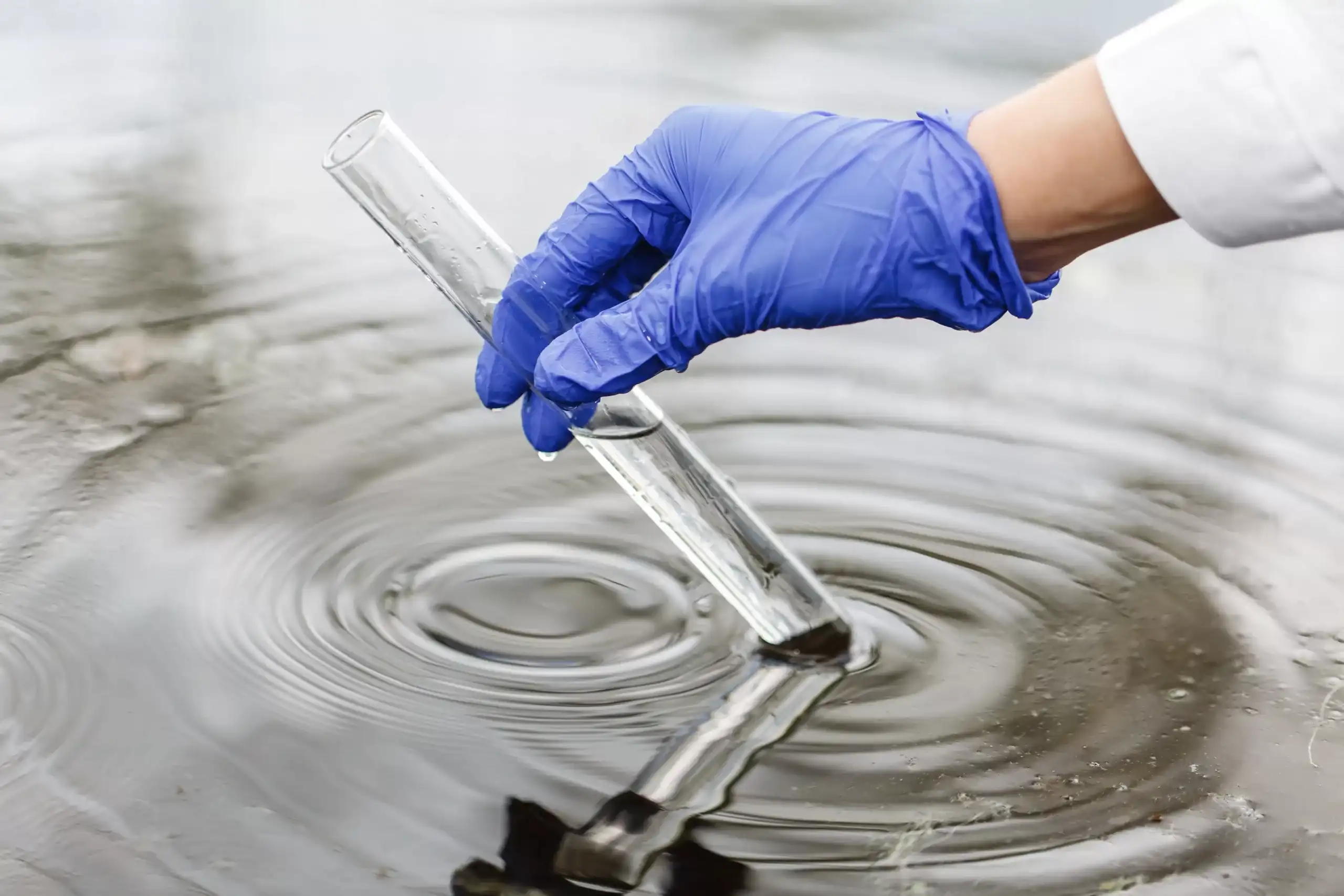Professional Well Water Testing Services: Get Accurate Results Rapid
Professional Well Water Testing Services: Get Accurate Results Rapid
Blog Article
Learn How Water Testing Can Identify Pollutants and Protect Your Family's Well-being
Recognizing the relevance of water screening is essential for guarding your family's health, as our supply of water can nurture unseen risks. From germs to hefty steels, contaminants position serious dangers, usually undetectable without correct analysis. By checking out the mechanics of water screening, one can uncover the unnoticeable risks prowling in seemingly immaculate water sources. Yet, how do you figure out which tests are essential for your house, and what steps should be taken as soon as potential threats are revealed? As we browse these concerns, the course to making sure water security and a healthier living atmosphere becomes more clear.
Value of Water Evaluating
Identifying the vital duty water plays in maintaining life, the relevance of water screening can not be overstated. Guaranteeing that water is complimentary from damaging substances is critical for keeping healthy and balanced communities and ecosystems. Well water testing services.
Water screening works as a proactive procedure to identify potential risks that may compromise water top quality. Through organized evaluation, it aids detect physical, chemical, and biological parameters that might present threats to human health and wellness. Routine testing enables the early detection of problems, assisting in timely treatments to avoid widespread contamination and linked illness.
In addition, water testing sustains governing compliance, ensuring that water companies fulfill well-known safety and security criteria and guidelines established by governmental authorities. It fosters openness and liability, developing public count on the supply of water system. Additionally, screening gives valuable information that informs water monitoring methods, enabling sustainable usage and preservation of this valuable source.
Fundamentally, water screening is an essential device that safeguards public health, ensures regulative adherence, and promotes the sustainable management of water sources. Its importance in securing both areas and individuals can not be ignored.
Common Water Contaminants
Amongst the various aspects that can endanger water quality, typical water contaminants include an array of physical, chemical, and organic compounds that position substantial risks to human health and wellness and the atmosphere. Physical contaminants often entail sediments or organic products suspended in water, which can affect clarity and taste. Chemical impurities include a large range of materials, consisting of chemicals, herbicides, steels like lead and mercury, and commercial chemicals. These chemicals can penetrate water products through farming runoff, commercial discharges, or leaching from pipes and tank.
Organic pollutants, largely germs, viruses, and protozoa, arise from human and animal waste going into water systems. Pathogens such as E. coli, Giardia, and Cryptosporidium are well-known for triggering gastrointestinal illnesses and can be particularly dangerous to kids, the senior, and those with jeopardized immune systems. Nitrates and nitrites, frequently originating from fertilizers, posture another wellness threat, specifically to babies, possibly bring about problems like methemoglobinemia or "blue infant syndrome."
In addition, arising contaminants, including pharmaceuticals and individual treatment items, have increased worries due to their persistence and unknown lasting effects. Comprehending these impurities is crucial for applying effective water treatment methods and making certain safe alcohol consumption water.
How Water Screening Works
Comprehending the spectrum of impurities in water highlights the importance of efficient testing approaches to safeguard public health. Water testing is a systematic procedure designed to determine and evaluate numerous pollutants that could pose threats to human health.
Chemical screening often includes spectrometry or chromatography, both of which can recognize and gauge particular chemical compounds. Additionally, physical attributes like color, turbidity, and ph are assessed to supply understanding into the overall quality of the water.
The accurate techniques employed in water screening depend on the specific contaminants of worry and the water's intended use. By regularly using these extensive testing procedures, scientists and public wellness officials can ensure the safety and top quality of water, thus safeguarding neighborhoods from possible health threats.
Picking the Right Test
The very first action is assessing the water source-- be it local, well, or surface area water-- as each has distinct dangers. Municipal water could require screening for disinfectant by-products, while well water may need testing for nitrates, germs, and heavy metals.
Next, think about ecological elements and current events. Neighboring agricultural activities could demand screening for herbicides and chemicals, whereas industrial areas might call for checks you can look here for chemical toxins. Additionally, any type of changes in water preference, look, or odor should prompt particular screening for typical pollutants like lead, chlorine, or organic pathogens.
Expert water testing services offer comprehensive sets that target a vast array of prospective pollutants. These sets commonly straighten with requirements set by the Epa (EPA) or local wellness departments. For a more tailored approach, seeking advice from a water high quality specialist can provide insights into which certain tests are essential based on regional issues and private health needs, making sure the defense of your household's health.

Preserving Water Safety

In enhancement to screening, appropriate upkeep of water supply plays a crucial duty. This includes inspecting and servicing More Help pipes systems, storage space containers, and septic tanks to prevent leaks or backflow that can present impurities - Water Testing Service. Utilizing water purification systems designed to address specific neighborhood concerns can additionally secure against impurities, providing an extra layer of security
Public understanding and education are just as crucial in maintaining water safety and security. Areas ought to be informed about potential dangers associated with regional water sources and the required actions to mitigate them. Urging public involvement in water safety efforts fosters a cumulative obligation that boosts overall performance.
Eventually, a detailed approach that incorporates routine testing, system upkeep, and community participation is essential in safeguarding water high quality. By doing so, households can be assured of safe and tidy water, safeguarding their health and wellness and health.

Final Thought
Regular water testing is necessary for identifying pollutants such as bacteria, hefty steels, and chemicals that pose health risks. By examining water examples, hidden threats can be discovered, ensuring the provision of secure alcohol consumption water. This proactive method aids produce a much healthier setting and facilitates informed decision-making concerning water safety and security. Choosing proper testing approaches and maintaining alertness in water high quality are critical action in guarding public health and guaranteeing the health of all household members.
Recognizing the significance of water screening is essential for guarding your family members's health, as our water supply can nurture undetected risks.Water testing serves as a proactive measure to identify YOURURL.com possible dangers that may jeopardize water quality.Moreover, water screening supports regulatory compliance, ensuring that water companies meet established security requirements and standards established by governmental authorities. Local water may call for testing for disinfectant by-products, while well water might need testing for nitrates, germs, and hefty metals.
Normal water testing is a vital element in keeping the high quality of water resources, allowing prompt treatments before pollutants reach harmful degrees.
Report this page